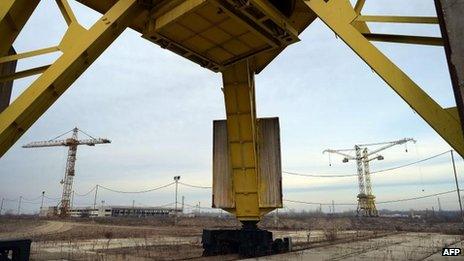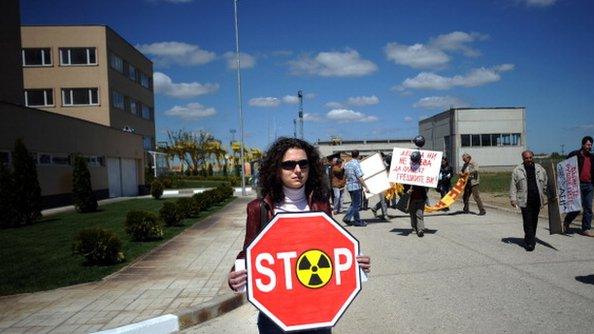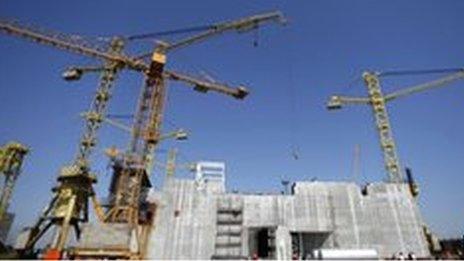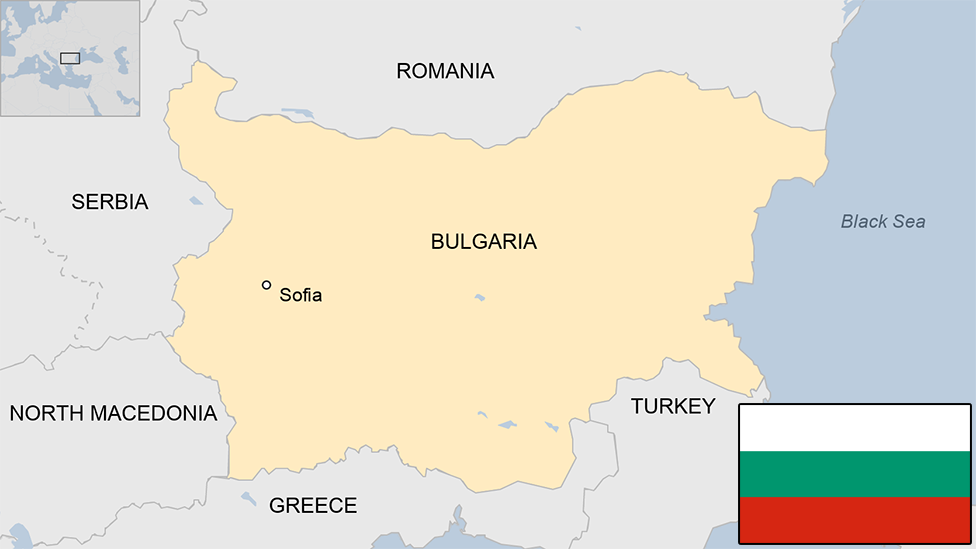Bulgaria nuclear vote 'invalidated by low turnout'
- Published

Building work on a nuclear plant near Belene was abandoned last year
A controversial referendum on whether to build a new nuclear power plant in Bulgaria appears to have been invalidated by low turnout.
An exit poll put turnout at around 20% - far below the 60% required for the poll, which was called on the basis of an opposition petition.
The opposition Socialists want the centre-right government to reverse its decision not to build the plant.
The poll has been seen as a barometer for elections later this year.
It was also important as a measure of attitudes to Russia, which was contracted to build the plant, the BBC's Nick Thorpe reports from Budapest.
If the poor turnout is confirmed by official results, this will mean that parliament must debate the issue, but the government is not obliged to build anything, he adds.
Existing plant
The government says it supports the provision of nuclear power from an existing plant at Kozloduy, but that it does not have the 10bn euros (£6.3bn; $13.4bn) it says would be needed to build a new plant.
Prime Minister Boyko Borisov told local media that this would remain the case even if Bulgarians voted in favour of a new nuclear plant.
Bulgaria had to close four of its old reactors at Kozloduy as a precondition for its 2007 EU membership.
The government froze plans to finish the plant at Belene last year, when work at the site on the southern bank of the River Danube was already well under way.
The Socialists are seen as closely linked to the Belene project, having granted a construction contract for the plant to Russian state company Atomstroyexport in 2008.
They say Belene would now cost 4-6bn euros to complete, and would lower electricity costs for consumers.
Environmentalists had opposed the plant, which had first been proposed when Bulgaria was under communist rule.
- Published25 January 2013

- Published28 March 2012

- Published20 January
